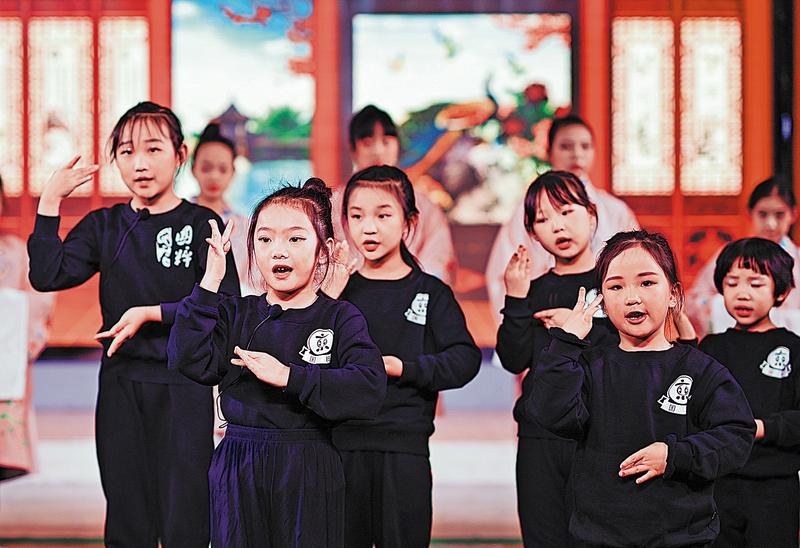 Children in Hohhot, Inner Mongolia autonomous region, perform Peking Opera to celebrate Spring Festival this year. (WANG ZHENG / FOR CHINA DAILY)
Children in Hohhot, Inner Mongolia autonomous region, perform Peking Opera to celebrate Spring Festival this year. (WANG ZHENG / FOR CHINA DAILY)
Five young female students at the Shanghai Theatre Academy have become online celebrities by singing pop songs to the tunes of Peking Opera works.
Numerous netizens who have watched footage of the students said that, thanks to them, they have gained a better understanding of why their parents developed a love for this art form.
I hope that more teenagers can gain an interest and understanding of the art form by watching this ‘campus Peking Opera’.
Li Jing, Peking Opera actress and also a teacher at the Donggaodi Youth Science and Technology Museum in Beijing
The students, mainly roommates in dormitory 416 at the academy, are known on the internet as the "416 girls". They have released footage of their singing on short-video platforms since 2019.
Sometimes in the dormitory they wear Peking Opera makeup and costumes and make poses connected with the art form. They tell netizens how to distinguish between different schools of the operatic genre, and also tell them how to learn more about it.
Over the past three years, the students have gradually gained a large number of fans.
In one of the videos, which has been viewed more than 50 million times and received 2.5 million "likes", they sing the pop song Tan Chuang to a Peking Opera tune. To date, footage of the students has received a total of 20 million "likes".
Several months ago, the students wrote and released an original song based on a Peking Opera tune, which explains different roles in the art form. Titled Jia'ren Xi, or Play of Beautiful Women, the lyrics state: "Drums and gongs beat again, and I enter onto the stage. Fluttering flowing sleeves, my dancing dazzles everyone… the girl in martial attire is not second to any boy…"
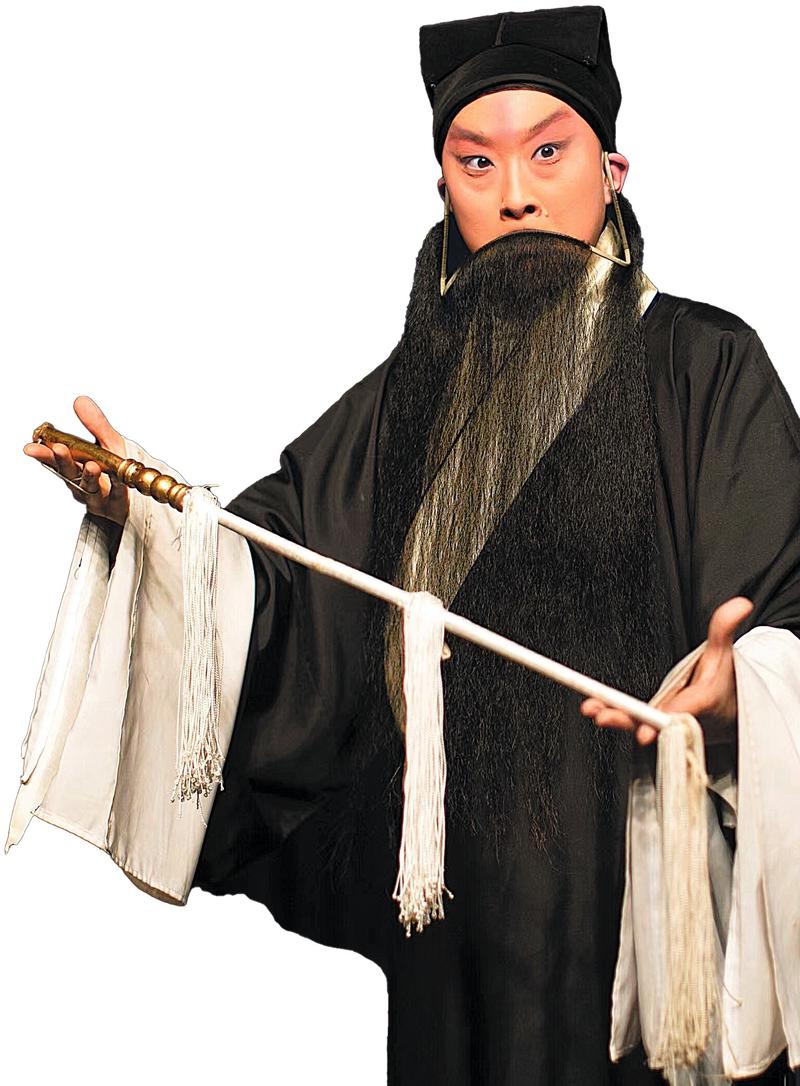 Li Jing plays an elderly male Peking Opera performer in the stage drama Empress Dong in Beijing. (PHOTO PROVIDED TO CHINA DAILY)
Li Jing plays an elderly male Peking Opera performer in the stage drama Empress Dong in Beijing. (PHOTO PROVIDED TO CHINA DAILY)
Young people such as the "416 girls" have increased audience numbers for Peking Opera, which boasts a history of more than 200 years.
Guo Jing, 27, a primary school teacher who owns a photographic studio themed on Peking Opera, has about 2.5 million followers on the Douyin short-video platform.
In her videos, she performs ancient songs while dancing to Peking Opera movements, or discusses interesting stories about the art form while preparing makeup for the stage.
"I want to be one of the best arts vloggers, and I see it as my mission to shorten the distance between stage art and life," Guo said.
She has dyed her hair and also writes calligraphy and plays the drums, incorporating these elements in short videos and using montages to create a refreshing and stark contrast between ancient and modern.
Pan Yan, secretary-general of the China Performance Industry Association, said Peking Opera has a unique charm that people can sense without having to understand it.
Audiences experience the art form's beauty by watching short explanatory videos, and they also imitate and spread news about Peking Opera after watching video footage, Pan said.
A report from Douyin said traditional works, including Peking Opera, are the most popular intangible cultural heritage items on the short-video platform.
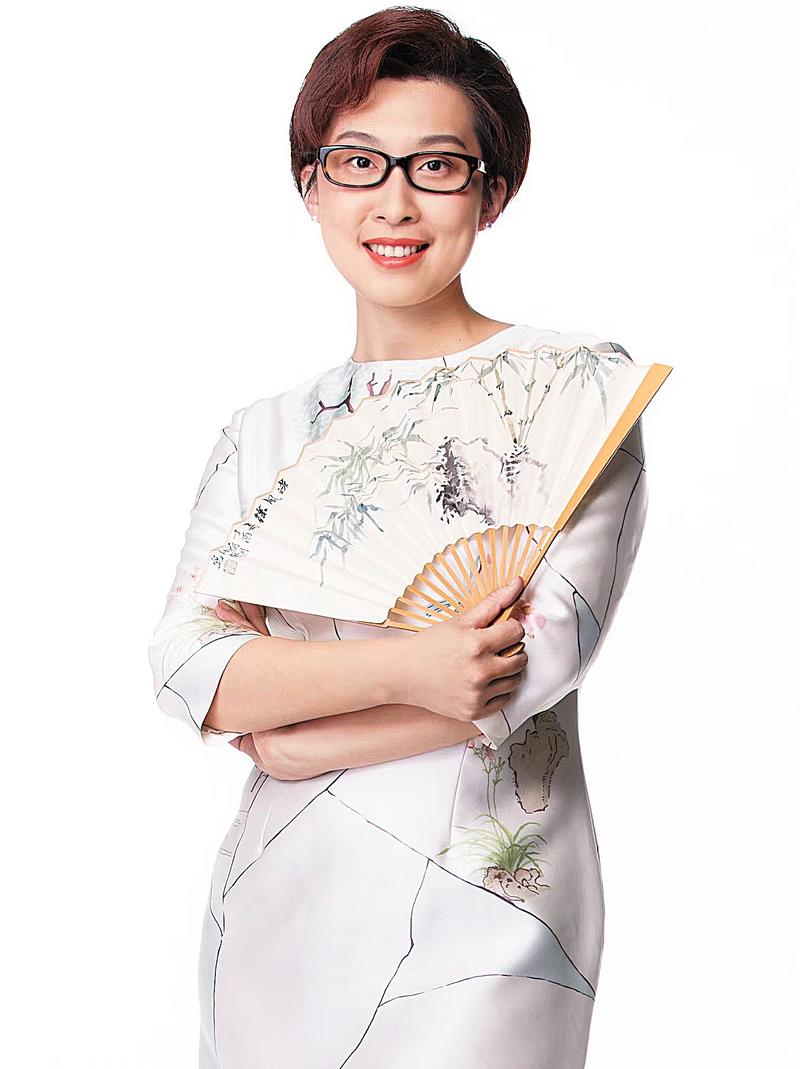 Li Jing, Peking Opera actress and also a teacher at the Donggaodi Youth Science and Technology Museum in Beijing. (PHOTO PROVIDED TO CHINA DAILY)
Li Jing, Peking Opera actress and also a teacher at the Donggaodi Youth Science and Technology Museum in Beijing. (PHOTO PROVIDED TO CHINA DAILY)
Household names
Jingge-songs that feature elements of Peking Opera-are gaining popularity among young people.
One of the earliest such numbers that became popular is linked to the song Jiao Dao in 1964, which featured in the Hong Kong movie Blood Handprint. Using a Peking Opera melody, it was performed on stage by Teresa Teng, Fei Yuqing and numerous other well-known singers.
There are infinite opportunities to explore the combination of Peking Opera and other art forms. These art forms are different, but they also convey human feelings in a strong way, and they can borrow from each other.
Li Zhengkuan, jingge singer
In the 1990s, many songs featured elements of Peking Opera, with some becoming household names, including Hometown is Beijing, Ode to Pear Flowers, Rap Facial Makeup (Shuochang Lianpu) and One Night in Beijing.
A Bitter Love (Qing Yuan), written by singer Liu Huan in 1996, combines modern pop music with Peking Opera tunes.
About 12 years ago, singer Li Yugang became well known for performing New Drunken Concubine. Written by composer/songwriter Hu Li, the music and singing style borrowed much from Peking Opera. Traditional plucked instruments such as the erhu, zheng and pipa, along with the xiao, a flute played vertically and usually made from bamboo, were used for the song.
Jingge songs are now more popular as young people become increasingly interested in traditional culture.
Li Zhengkuan, 26, is among the present-day jingge singers who have attracted a following. One of his best-known songs, Wujiapo 2021, is adapted from a passage in the Peking Opera drama Red Maned Horse. The song has been played about 13 million times, receiving more than 440,000"likes".
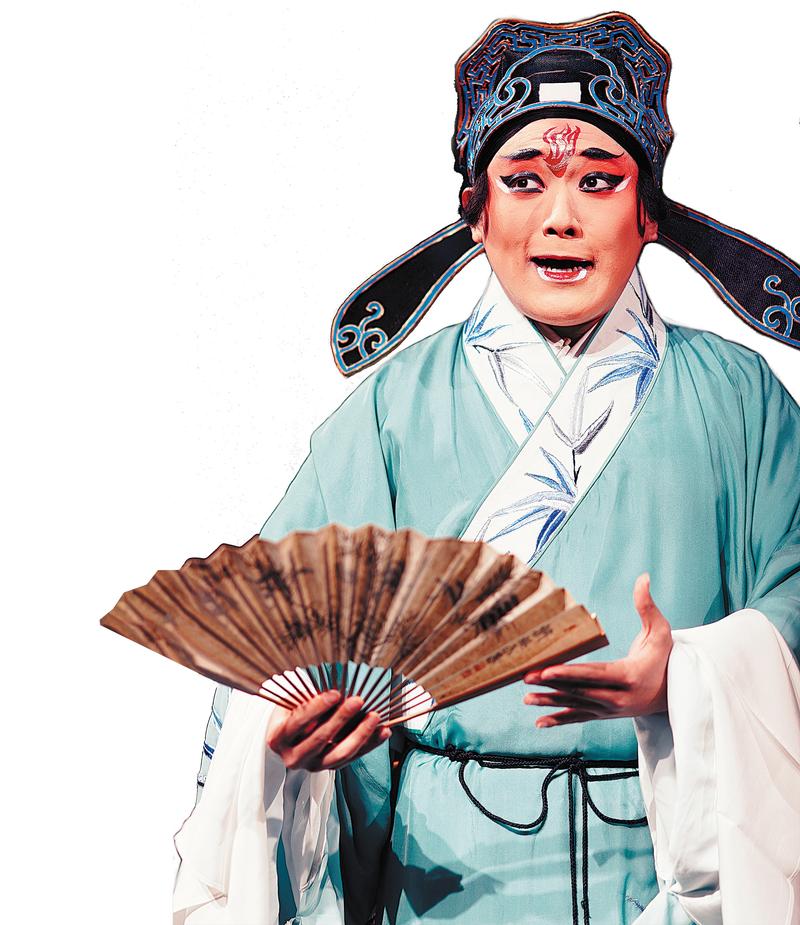 Li Zhengkuan performs the lead role in the new Peking Opera Ma Jiefu. (PHOTO PROVIDED TO CHINA DAILY)
Li Zhengkuan performs the lead role in the new Peking Opera Ma Jiefu. (PHOTO PROVIDED TO CHINA DAILY)
Most young audiences surprised and impressed by the melody for Wujiapo 2021 said they would like to listen to similar songs.
The storyline for Red Maned Horse, the thinking of the hero and heroine, and the views held on marriage in ancient times have triggered heated discussion.
Li, who began studying Peking Opera when he was 7, attended the Chinese Opera School Affiliated to the Shanghai Theatre Academy for eight years before going on to the academy, where he graduated after majoring in Chinese Opera directing.
He has posted many videos on social media of himself singing numbers adapted from Peking Opera while playing guitar.
Wujiapo 2021 has a quicker rhythm with drum accompaniment than Wujiapo, another version released earlier.
"This song uses the structure of pop music, which is familiar to young audiences and combines elements of Peking Opera, which they find surprising," he said.
"Red Maned Horse has been performed by generations of artists to meet audience preferences, which is part of its great charm," Li said.
"Young people are now paying more attention to traditional operas, and they like songs with operatic elements, which reflect cultural confidence."
In December, To the Moon, a crossover song sung by Li featuring Peking Opera and Cantonese Opera, won the gold medal at the third Global Micro Cantonese Music Competition in Guangzhou, capital of Guangdong province.
Last year, Li directed a musical titled Every Sound is Song, which uses elements of rap songs, pop music and Peking Opera. The production won high praise from audiences in Shanghai.
Two years ago, he directed a Peking Opera work based on the tragic play Faust by Johann Wolfgang von Goethe.
"I want to introduce Western classics to Chinese audiences and also spread the charm of Peking Opera through well-known Western works," he said.
"Based on my experience, there are infinite opportunities to explore the combination of Peking Opera and other art forms. These art forms are different, but they also convey human feelings in a strong way, and they can borrow from each other."
Li wants to create musicals based on traditional operas. "In this way, young audiences can more easily accept and even fall in love with these operas," he said.
He is directing a musical for children that is based on Peking Opera and features the life of Gao Shi (704-765), a poet during the Tang Dynasty (618-907). Two of Gao's poems are included in the popular anthology Three Hundred Tang Poems. The poet was born to an impoverished family, had a rocky career in early life, but made great achievements in his 50s and became a military secretary.
"When I received the original script, it was only an ordinary play. But by combining it with Peking Opera, I want to make the work attractive to children and turn it into an opportunity for them to appreciate traditional operas," Li said.
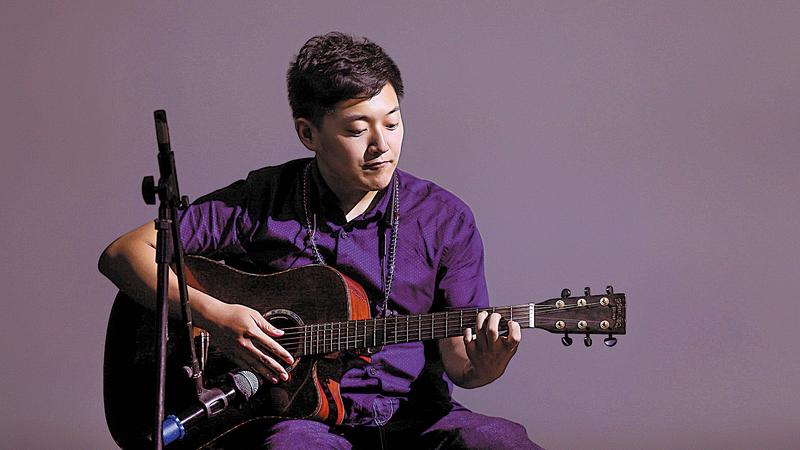 Li Zhengkuan, jingge singer. (PHOTO PROVIDED TO CHINA DAILY)
Li Zhengkuan, jingge singer. (PHOTO PROVIDED TO CHINA DAILY)
Campus production
Li Jing, 34, a Peking Opera actress and also a teacher at the Donggaodi Youth Science and Technology Museum in Beijing, recently co-directed a "campus Peking Opera "catering to students. The youngest player in the production was a grade two primary school pupil, while the eldest was in the second year of high school.
The opera tells the story of Chang'e, the Chinese goddess of the moon, and the Chinese Lunar Exploration Program named after her.
"I hope that more teenagers can gain an interest and understanding of the art form by watching this 'campus Peking Opera'," Li Jing said. "The art form is the quintessence of our country, condensing the wisdom and efforts of countless predecessors. As a traditional art, it needs to be inherited and developed by the younger generation.
"This work, which includes the space program, innovatively imparts science and technology knowledge to students in the form of Peking Opera."
In 2019, Li Jing joined the cast of the stage drama Dong Huang (Empress Dong), which premiered in Beijing in May that year and toured nationwide.
This work, which also combines stage drama with Peking Opera, tells the story of actress Meng Xiaodong (1907-77), known to her fans as Empress Dong.
Peking Opera performances initially featured all-male casts, and it was not until the early 20th century that female artists playing laosheng-elderly male roles-became commonplace.
Meng, who was among the best-known laosheng performers, was renowned for her clear voice and commanding portrayal of male roles.
Li Jing performed Peking Opera parts in the stage role of Meng. "Many audiences told me they became curious about the art form after watching the production," she said.
Ji Pei, the director of Dong Huang, said: "This stage drama not only interprets the legend of Meng Xiaodong, but also sheds light on the survival and emotional lives of independent women, combining with the beauty and charm of Peking Opera. No wonder it has had great success in attracting audiences."
Guo Baochang, 82, a respected television series director and longtime Peking Opera enthusiast, co-authored a book titled Peking Opera: The Great Game, which was published last year.
The book explores the charm of Peking Opera from a new perspective and interesting stories about the art form.
Guo also adapted his popular TV series The Grand Mansion Gate, which focuses on a family's ups and downs at the end of the 19th and start of the 20th centuries, into a Peking Opera work, which debuted in 2017.
In his book, he makes clear that Peking Opera only has a future if it innovates and reforms to keep up with today's world of global integration and cross-industry development.
"Now we should study changing tastes among audiences in the modern era, take part in market competition, and incorporate other art forms to promote Peking Opera.," Guo writes.


